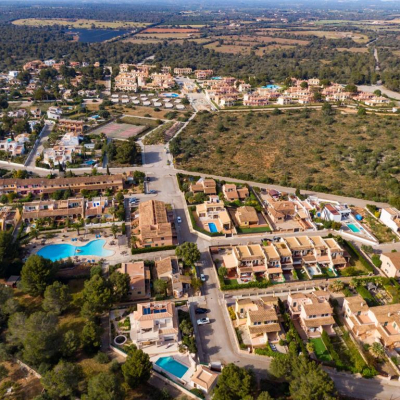Health Care in Spain

Spain's health care has not been immune to the country's troubled year riddled with budget cuts in public services. Still, with an aging population, the system, known as the Ministerio de Sanidad y Consumo, is extensive and covers all legal residents. In short, care is universal to all legal residents and their family members.
Spain is divided into 17 self-governing states, called autonomías, and each controls their own health care system. Apart from public and private hospitals, most towns have a Centro de Salud, or primary care center that takes patients before referring them for specialized care. Note that in some rural or remote regions, health care professionals may still be travelling doctors, or open practices just a few days a week.
The umbrella organization at the federal level completes systematic checks of facilities and doctors. All medical facilities and personnel must be registered to give care in their autonomous region. When relocating to Spain, it's extremely important to read up on your region's health care specifics.
The emergency number in Spain is 112.
The Madrid-based headquarters for the Ministerio de Sanidad y Consumo:
Paseo del Prado 18 – 20
28014 Madrid
+34 901 400 100
English Website: http://www.msc.es/en/home.htm
Who's Entitled to Health Care
In short, anyone living legally in Spain (workers, the self-employed, students, military personnel, civil servants) are entitles to care.
Up until September of 2012, all immigrants – including undocumented ones – were given free health care. Due to drastic cuts in the sector, illegal residents are no longer covered. All care centers will recognize the European Health Insurance Card (EHIC), but be sure to tell doctors that you'd like to be treated under this card and according to EU-wide standards. Any costs incurred may be reimbursed, depending on the country of issue.
Public or Private Health Care
There are two types of health insurance:
- Public - through the Social Security system
- Private - insurance provided by companies
Many expats choose to use the public social security system, particularly for emergencies. They may choose to take out their own private plan for other concerns or routine visits.
Public Insurance is funded by Social Security, with employers and employees making monthly contributions. The amount to be paid depends on your line of work, and while employers pay the majority of the cost, some of it is likely to come from your salary.
These payments cover unemployment, maternity, sickness, retirement and pensions, overtime and illness, both work- and non-work related. Coverage will largely depend on the sector and region.
Visits and general check-ups are free, including in emergency situations. If necessary, a doctor will refer you to a specialist, but be aware that there are often long wait times for appointments.
Enrolling in Social Security
Employers are legally obligated to enroll employees into the social security system. This system covers basic healthcare and much of the cost is absorbed by the employer. Small businesses may require you to become an autónomo and pay on your own.
To enroll in the program on your own, you'll need a número de afiliación de la seguridad social, which you can get at the Tesoría General de la Seguridad Social. With this document, you can go to your assigned primary care clinic, the Centro de Salud, and apply for a social security card. You will then need to present the document and a photo ID (such as a passport or NIE). Wait times for cards vary by region. While you wait, the document with your social security number will work as a substitute, presented along with a photo ID.
Private insurance is open to any legal resident in Spain. Private insurance may require a co-pay. Fees also vary by insurance company, age and current health condition. Major providers include Adeslas, Sanitas, Caritas, and Mapfre, among others. Some offer benefits for those under 26, temporary residents or large families so check out different plans to find the best option for you and your family. Your employer may also provide a special rate so inquire with them before signing up.
Enrolling in private insurance often means that care and wait times for specialists are much quicker. Many consider this sector to provide better care, and doctors are, in some cases, bilingual. You are also able to choose where you receive your care, rather than have the government chose for you.
Enrolling in Private Insurance
Private insurance companies are competitive, so once you've settled on a company that fits your needs, you'll need to enroll. Periods where you're active in the system are called an alta, and are immediate from your first payment. Plans start from 15€ monthly, and in many cases, you'll pay a registration fee of about 30€.
Not all expats over the age of 57 will be taken on by all companies, so finding expat-friendly insurance may be necessary.
Research additional insurance options and receive free quotes on our Health Services in Spain page.
By Cat Gaa, who left her native Chicago five years ago to live in the olive groves of Andalusia. Residing in Seville, she teaches first grade at a private school, but all she wants to really do is write.
- My Life Abroad -
A selection of expat stories

"A fun compulsive read!"
J. Matcham, Amazon
"I strongly advise people ready to live abroad to read this book!"
Patrice, Amazon

 Guide to the European Health Insurance Card
Guide to the European Health Insurance Card  APRIL Travel Insurance
APRIL Travel Insurance Cigna Global
Cigna Global William Russell
William Russell Embassies and Consulates in Spain
Embassies and Consulates in Spain Why using an alternative broker for large money transfers
Why using an alternative broker for large money transfers